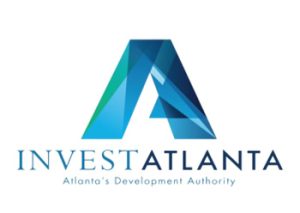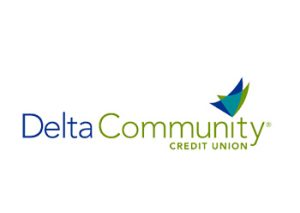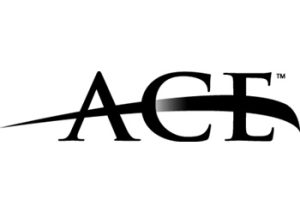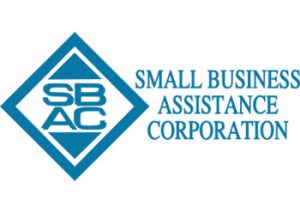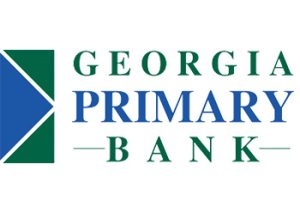Georgia Business Loans: Fuel Your Growth with Affordable Funding
Entrepreneurs, Georgia is the land of opportunity! Take advantage of low costs and high potential with the right business loan to scale your success.
Types of Business Loans in Georgia: Finding the Right Funding for Your Success
Securing the right financing is crucial for growing a business in Georgia. Whether you’re launching a startup, expanding operations, or upgrading equipment, there are various loan options available to meet your specific needs. Below, we break down the most common types of business loans in Georgia, each designed to support businesses at different stages of growth.
SBA Loans: Government-Backed, Business-Friendly Financing
Small Business Administration (SBA) loans are one of the most attractive financing options for entrepreneurs. These loans are partially guaranteed by the federal government, making them less risky for lenders and often more accessible to small businesses. The SBA 7(a) loan, the most popular option, offers flexible terms and competitive interest rates, making it an excellent choice for working capital, real estate purchases, and equipment financing. Other options include SBA 504 loans for fixed assets like buildings and machinery and SBA Micro loans for startups and small-scale business needs.
Business Lines of Credit: Flexible Funding When You Need It
A business line of credit works similarly to a credit card, giving your business access to a predetermined amount of funds that you can draw from as needed. This option is ideal for managing cash flow fluctuations, covering unexpected expenses, or taking advantage of time-sensitive growth opportunities. You only pay interest on the amount borrowed, making it a cost-effective way to finance short-term business needs.
Term Loans: Structured Financing for Long-Term Growth
A term loan provides a lump sum of money upfront, which is repaid over a fixed period—often ranging from a few years to as long as 25 or even 30 years. Term loans are a great choice for business expansion, major equipment purchases, or real estate investments. These loans typically offer predictable repayment schedules, making it easier to plan your business finances.
Equipment Financing: Keep Your Business Running with the Right Tools
Purchasing or upgrading business equipment can be expensive, but equipment financing allows you to acquire the tools and machinery you need without paying the full cost upfront. With this type of loan, the equipment itself serves as collateral, reducing lender risk and often leading to lower interest rates. This financing option is particularly beneficial for construction companies, manufacturers, restaurants, and medical practices that rely on specialized equipment.
Accounts Receivable Financing: Unlock Cash from Outstanding Invoices
If your business struggles with cash flow due to unpaid invoices, accounts receivable financing (also known as invoice financing) can provide immediate funding. Lenders advance a percentage of the total value of your outstanding invoices, giving you quick access to working capital while waiting for customers to pay. This type of financing is especially useful for businesses with long invoice cycles, such as B2B service providers, wholesalers, and contractors.
Finding the Best Business Loan for Your Needs
Choosing the right business loan in Georgia depends on factors like your credit score, cash flow, business goals, and the urgency of your funding needs. Whether you need quick access to capital or long-term financing, Georgia offers a wide range of options to support your business growth. Before applying, consider working with a financial advisor or lender to determine which loan type aligns best with your objectives.
By understanding these financing options, you can make an informed decision and secure the funding that will drive your business success in the Peach State.
Local Georgia Business Loan Options: Funding Tailored for Your Success
Invest Atlanta: Empowering Small Businesses with Funding & Support
Invest Atlanta offers a variety of small business lending programs designed to help entrepreneurs in the Atlanta area access the capital they need to grow and succeed. As the city’s official economic development authority, Invest Atlanta not only provides funding opportunities but also equips business owners with valuable resources to improve their financial literacy and loan approval chances.
Delta Community Credit Union: A Trusted Partner for Georgia’s Small Businesses
Delta Community Credit Union is one of Georgia’s leading financial institutions, offering a range of commercial lending solutions tailored to the needs of small business owners. As the largest credit union in the state, Delta Community is known for its personalized approach, competitive rates, and commitment to helping local businesses thrive.
Georgia Department of Community Affairs
Entrepreneurs in Georgia have access to a unique state-backed funding program designed to help small businesses secure the capital they need to grow. The State Small Business Credit Initiative (SSBCI) is a government-supported loan program that provides businesses with enhanced access to financing by reducing lender risk. Through this initiative, Georgia aims to stimulate economic growth, create jobs, and support local businesses that might otherwise struggle to obtain traditional financing.
Access to Capital for Entrepreneurs (ACE): Empowering Georgia’s Small Businesses
Access to Capital for Entrepreneurs (ACE) is a nonprofit organization dedicated to supporting small business owners in North Georgia and metro Atlanta by providing the financial resources and expert guidance they need to succeed. As one of the region’s leading small business lenders, ACE focuses on helping entrepreneurs access capital, navigate business challenges, and achieve long-term growth.
Small Business Assistance Corporation (SBAC): Fueling Growth for Southeast Georgia Businesses
The Small Business Assistance Corporation (SBAC) is a mission-driven lender dedicated to supporting small businesses across Southeast Georgia by providing accessible financing solutions tailored to meet their needs. Whether you’re launching a startup, expanding your operations, or investing in new equipment, SBAC offers a range of loan programs designed to help businesses secure the capital they need to grow and succeed.
Georgia Primary Bank: Flexible Financing Solutions for Small Businesses
Georgia Primary Bank is a trusted financial institution committed to helping entrepreneurs and small business owners access the funding they need to grow and succeed. With a strong focus on personalized service and competitive lending solutions, the bank provides a variety of business loan options tailored to meet the needs of companies at every stage—from startups to well-established enterprises.
Apply for a Small Business Loan in 3 Simple Steps
Securing funding for your business doesn’t have to be complicated. Follow these three easy steps to apply for a small business loan and access the capital you need.
![]() Step 1: Complete the Online Application
Step 1: Complete the Online Application
Start by filling out a quick and secure online application—it typically takes just 15 minutes. Your personal and business information is protected with bank-grade encryption and SSL technology, ensuring your data remains safe throughout the process.
 Step 2: Review Your Loan Matches
Step 2: Review Your Loan Matches
Once your application is submitted, you’ll receive a list of potential loan options tailored to your business’s financial profile. This allows you to compare different lenders, interest rates, and terms before selecting the best financing solution for your needs.
![]() Step 3: Get Approved and Funded
Step 3: Get Approved and Funded
After choosing the loan that works best for your business, the approval process can move quickly—many applicants receive funding in as little as 7 to 10 days. Once approved, you’ll have access to the capital you need to grow, invest, and scale your business.
Georgia Small Business Loans Frequently Asked Questions
1. What additional resources are available for small businesses in Georgia?
Georgia offers a variety of resources for small business owners, including mentorship programs, free business consulting, grants, tax incentives, and networking events. Organizations like Invest Atlanta, Access to Capital for Entrepreneurs (ACE), and the Georgia Small Business Development Center (SBDC) provide financial guidance and support to help businesses grow.
2. Are there any small business grants available in Georgia?
Yes! While grants can be competitive, several funding opportunities exist for small businesses in Georgia. Programs such as Georgia Grant Watch, Invest Atlanta’s Resurgence Grant Fund, and industry-specific grants help businesses access free funding. Checking with state and local economic development offices can also reveal additional grant options.
3. What are the qualifications for a business loan in Georgia?
To qualify for a small business loan in Georgia, lenders typically look at your credit score, time in business, revenue, and collateral. Many loan programs require a business plan, proof of financial stability, and a clear plan for how the funds will be used. SBA loans and bank loans may have stricter requirements, while microloans and alternative lenders tend to be more flexible.
4. How do I choose the right loan for my business in Georgia?
The best loan depends on your specific needs. Here are some options:
- SBA 7(a) loans – Best for general business funding.
- SBA 504 loans – Ideal for purchasing property or equipment.
- Lines of credit – Great for short-term cash flow needs.
- Micro-loans – Perfect for startups and small-scale operations.
Speaking with a financial advisor or lender can help you find the best financing option.
5. How can a business loan help my Georgia-based company grow?
A small business loan can provide working capital, cover payroll, purchase inventory, invest in marketing, expand locations, or buy new equipment. Access to the right financing ensures businesses have the resources needed to hire employees, improve operations, and increase revenue over time.
6. What is an SBA Preferred Lender, and why does it matter?
An SBA Preferred Lender is a financial institution that has received special approval from the U.S. Small Business Administration to process SBA-backed loans faster than regular lenders. These lenders have extensive experience with SBA programs, making the approval process more efficient.
7. What are the advantages of getting an SBA loan?
SBA loans are government-backed, making them one of the most attractive financing options for small businesses. Benefits include:
- Lower interest rates compared to traditional loans.
- Longer repayment terms, reducing monthly payments.
- Lower down payments, making it easier to qualify.
- Flexible use of funds for different business needs.
8. What is an SBA 7(a) loan?
The SBA 7(a) loan is the most popular Small Business Administration loan, offering flexible financing for working capital, real estate, equipment purchases, and refinancing debt. It’s ideal for businesses needing affordable, long-term funding with lower down payments.
9. What is the difference between an SBA loan and a traditional bank loan?
SBA loans are partially backed by the government, reducing risk for lenders and offering lower interest rates and longer repayment terms. Traditional bank loans often have stricter credit and revenue requirements but may provide faster approval for well-qualified applicants.
10. Can startups get business loans in Georgia?
Yes! While many lenders prefer businesses with an established revenue stream, startups can qualify for micro-loans, SBA loans, and grants. Some nonprofit lenders and community development programs specialize in funding new businesses and entrepreneurs.
11. How long does it take to get approved for a small business loan?
The approval time varies based on the type of loan:
- SBA loans: Several weeks to a few months.
- Traditional bank loans: Typically 2-4 weeks.
- Online lenders: Funds available in as little as 24-72 hours.
12. What documents do I need to apply for a small business loan?
Most lenders require:
- A business plan outlining goals and financial projections.
- Financial statements (income statements, balance sheets, tax returns).
- Personal and business credit reports.
- Proof of business registration and licenses.
- Collateral details (if required).
